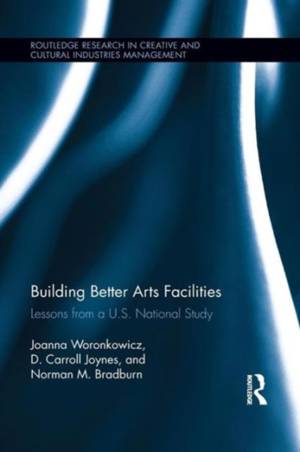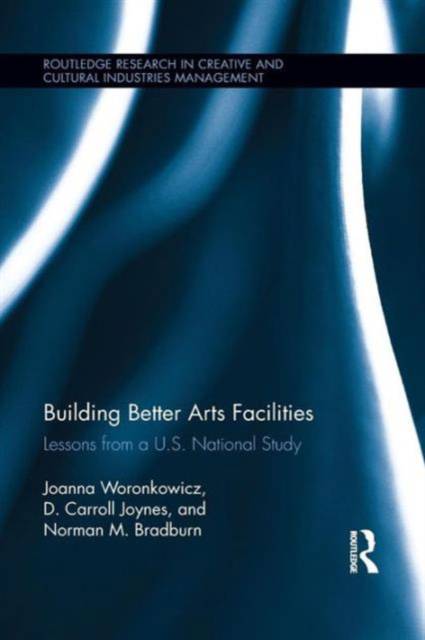
- Retrait gratuit dans votre magasin Club
- 7.000.000 titres dans notre catalogue
- Payer en toute sécurité
- Toujours un magasin près de chez vous
- Retrait gratuit dans votre magasin Club
- 7.000.0000 titres dans notre catalogue
- Payer en toute sécurité
- Toujours un magasin près de chez vous
Building Better Arts Facilities
Lessons from a U.S. National Study.
Joanna Woronkowicz, D Carroll Joynes, Norman BradburnDescription
At the turn of the 21st century, a significant boom in the construction of cultural buildings took saw the creation of hundreds of performing arts centers, theaters, and museums. After these buildings were completed, however, many of these cultural organizations struggled to survive, or, alternatively, drifted off mission as the construction project forced monetary or other considerations to be prioritized. Building Better Arts Facilities: Lessons from a U.S. National Study examines the ways in which organizations planned and managed building projects during this boom, and investigates organizational operations after projects were completed.
By integrating quantitative data with case-study evidence, the authors identify the differences between the ways some organizations were able to successfully meet the challenges of a large construction project and others that were not. With empirical evidence and analysis, this book highlights better practices for managing and leading cultural building ventures. Readers of this book - be they arts managers, politicians, board members, city planners, foundation executives, or philanthropists - will find that book provides valuable perspective and insight about building cultural facilities, and that reading it will serve to make building projects go more smoothly in the future.
Spécifications
Parties prenantes
- Auteur(s) :
- Editeur:
Contenu
- Nombre de pages :
- 184
- Langue:
- Anglais
- Collection :
Caractéristiques
- EAN:
- 9781138125797
- Date de parution :
- 29-09-15
- Format:
- Livre broché
- Format numérique:
- Trade paperback (VS)
- Dimensions :
- 152 mm x 229 mm
- Poids :
- 254 g

Les avis
Nous publions uniquement les avis qui respectent les conditions requises. Consultez nos conditions pour les avis.






